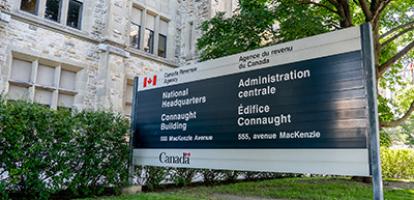From: Jon Johnson
To: Keystone Saga Watchers
Date: September 12, 2024
Re: TC Energy Loses its Keystone XL Claim Against US
The Keystone pipeline saga ended for TC Energy over the summer, when a World Bank tribunal issued its award finding for the US.
The US had initiated a jurisdictional challenge in this proceeding based on the fact that Joe Biden’s January 2021 revocation of TC Energy’s permit to build the Keystone pipeline occurred after the North American Free Trade Agreement’s termination on June 30, 2020.
Under Annex 14-C of the Canada-US-Mexico Agreement (CUSMA), the parties consented to arbitration claims respecting legacy investments existing when CUSMA entered into force on July 1, 2020, to be initiated at any time until July 1, 2023.
The tribunal majority, Alexis Mourre (Tribunal President) and John Crook (US appointee) agreed with the US and found that the tribunal did not have jurisdiction to hear the claim because the revocation occurred after NAFTA terminated.
They rejected the pipeline company’s argument that Annex 14-C amounted to an agreement among the NAFTA Parties to extend the application of the substantive provisions of NAFTA Chapter 11 for another three years. Hence, the substantive provisions of NAFTA Chapter 11 ceased to apply when NAFTA terminated on June 30, 2020, which, as noted, was before the permit was revoked on January 20, 2021.
Based on the foregoing, the majority declared that it had no jurisdiction to decide the claim. And they ordered TC Energy to pay costs of $1,482,119.29 (US) to the US government.
The third tribunal member, Henri Alvarez, the claimants’ appointee, dissented, maintaining that only four conditions must exist for a legacy investment claim to be arbitrated: The claim must be with respect to a legacy investment; the claim must allege a breach of an obligation under NAFTA Chapter 11, section A (the substantive NAFTA investment obligations); the claim must be made under the procedure set out in NAFTA Chapter 11, section B (which sets out the procedures for investors to submit claims for arbitration), and that the claim must be brought within three years of NAFTA’s termination. Mr. Alvarez held that all these conditions were satisfied and that there is nothing in CUSMA’s Annex 14-C that causes the substantive obligations to cease to apply upon NAFTA’s termination.
As far as TC Energy is concerned, this is the end of the road. There is no appeal under CUSMA rules from an adverse tribunal decision, and NAFTA rules require that an investor waive its right to initiate a claim in domestic courts.
The sequence of events, in this case, began 16 years ago when TC Energy – then still TransCanada Energy – applied for permission to construct the Keystone XL pipeline to run 1,900 kilometres from Alberta to Nebraska. In 2015, the Obama administration refused to issue the permit. The company filed a complaint under NAFTA Chapter 11 at a time when NAFTA was still in full force and effect. However, the Claimants withdrew the complaint when the Trump administration decided to issue a new permit. Based on the new permit, it continued work on the Keystone XL project and spent considerable sums on this project, only to have the permit cancelled as soon as President Biden took office.
TC Energy maintained that it was induced to withdraw its earlier complaint. The tribunal majority was dismissive, stating that “it was difficult to understand why the actions of the Trump administration in 2016 caused the claimants to lose their ability to now initiate arbitration proceedings.”
In fact, TC Energy was the victim of dramatic shifts in government policy from the Obama administration, through to the Trump administration, and back finally to the Biden administration. At the very least, the tribunal majority should not have awarded any costs and let the US government absorb the costs of its own inconsistent conduct.
Jon Johnson is a former advisor to the Canadian government during NAFTA negotiations and is a Senior Fellow at the C.D. Howe Institute.
To send a comment or leave feedback, email us at blog@cdhowe.org.
The views expressed here are those of the author. The C.D. Howe Institute does not take corporate positions on policy matters.





